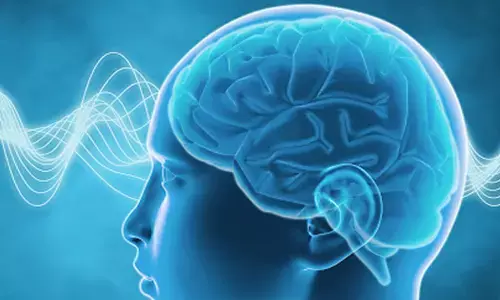- Home
- Medical news & Guidelines
- Anesthesiology
- Cardiology and CTVS
- Critical Care
- Dentistry
- Dermatology
- Diabetes and Endocrinology
- ENT
- Gastroenterology
- Medicine
- Nephrology
- Neurology
- Obstretics-Gynaecology
- Oncology
- Ophthalmology
- Orthopaedics
- Pediatrics-Neonatology
- Psychiatry
- Pulmonology
- Radiology
- Surgery
- Urology
- Laboratory Medicine
- Diet
- Nursing
- Paramedical
- Physiotherapy
- Health news
- Fact Check
- Bone Health Fact Check
- Brain Health Fact Check
- Cancer Related Fact Check
- Child Care Fact Check
- Dental and oral health fact check
- Diabetes and metabolic health fact check
- Diet and Nutrition Fact Check
- Eye and ENT Care Fact Check
- Fitness fact check
- Gut health fact check
- Heart health fact check
- Kidney health fact check
- Medical education fact check
- Men's health fact check
- Respiratory fact check
- Skin and hair care fact check
- Vaccine and Immunization fact check
- Women's health fact check
- AYUSH
- State News
- Andaman and Nicobar Islands
- Andhra Pradesh
- Arunachal Pradesh
- Assam
- Bihar
- Chandigarh
- Chattisgarh
- Dadra and Nagar Haveli
- Daman and Diu
- Delhi
- Goa
- Gujarat
- Haryana
- Himachal Pradesh
- Jammu & Kashmir
- Jharkhand
- Karnataka
- Kerala
- Ladakh
- Lakshadweep
- Madhya Pradesh
- Maharashtra
- Manipur
- Meghalaya
- Mizoram
- Nagaland
- Odisha
- Puducherry
- Punjab
- Rajasthan
- Sikkim
- Tamil Nadu
- Telangana
- Tripura
- Uttar Pradesh
- Uttrakhand
- West Bengal
- Medical Education
- Industry
Shared psychiatric disorder is not uncommon in old age, a case report

Shared psychotic disorder also known as "folie à deux" is a relatively rare psychiatric condition and reported cases in the elderly age group are very scarce. This disorder is characterized by the transference of delusional ideas from one individual to another. A recent case report in Hindawi Journal presents one such case of a mother and daughter who exhibited shared delusions of persecution after living in near-total isolation for 10 years.
An elderly female and her daughter in 50s were living together in the same apartment with the whole familial structure composed by mother, father, and single daughter. Both of them were known to be of good social and professional standing in their neighbourhood.
The demise of father in 2008 was a trigger for the development of the psychiatric symptoms in both mother and daughter.
Between 2008 and 2018, there were no public records of any of the women. They had seemingly disappeared. They started to isolate themselves from their friends and neighbours and slowly cut down all their social and familial ties.
This social withdrawal led to a progressive psychological impairment resulting in shared delusions of persecution, specifically that the people in their surroundings represented a potential danger. Progressively, this belief became a structured delusion where all contacts with the outside world became an important source of threat.
From this moment on, they started living in complete seclusion, spending most of the time at home without any contact with the outside. During these 10 years, the daughter went out very sporadically, only to provide basic needs.
At their mental state examination, both subjects had no insight about their morbid condition. Both patients showed an apparent age discrepancy. They were not oriented to time and presented with incoherent speech due to their delusional thoughts.
The mother was in poor physical condition, presenting with obesity and untreated personal care. The daughter was diagnosed with severe protein-energy malnutrition, irondeficiency anemia, and acute renal failure and had to be admitted to the ICU to prevent a refeeding syndrome. Psychiatric assessment revealed thought blocking as well as delusional ideas regarding the caregiving staff.
It became apparent that the mother was the primary. She exerted substantial authority over her daughter, directing her daughter's answers to the questions. She was started on anti-psychotic medications. The mother's treatment was successful; within a few weeks, she no longer showed delusions of persecution. The daughter also distanced herself from the initial psychotic beliefs without complete remission. Both patients were discharged, and a network was created by the psychiatric hospital which activated social workers for outpatient care.
It can be concluded that Folie à deux is considered to be a rare disease. It is seen that the disorder may be underdiagnosed, or the primary may receive treatment while the psychiatrist may not be aware that other individuals share the patient's delusions.
Source: Hindawi Case reports in Psychiatry: https://doi.org/10.1155/2022/8811140
M.B.B.S, M.D. Psychiatry
M.B.B.S, M.D. Psychiatry (Teerthanker Mahavir University, U.P.) Currently working as Senior Resident in Department of Psychiatry, Institute of Human Behaviour and Allied Sciences (IHBAS) Dilshad Garden, New Delhi. Actively involved in various research activities of the department.
Dr Kamal Kant Kohli-MBBS, DTCD- a chest specialist with more than 30 years of practice and a flair for writing clinical articles, Dr Kamal Kant Kohli joined Medical Dialogues as a Chief Editor of Medical News. Besides writing articles, as an editor, he proofreads and verifies all the medical content published on Medical Dialogues including those coming from journals, studies,medical conferences,guidelines etc. Email: drkohli@medicaldialogues.in. Contact no. 011-43720751


